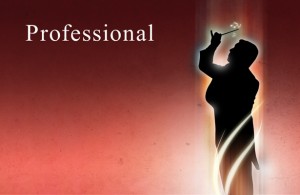Dr. Noa Kageyama, a professional musician and coach, maintains a great website called The Bulletproof Musician. One of the most interesting pieces that I’ve read by him is “How Many Hours a Day Should You Practice.” In it, he explores some fundamental, but often overlooked questions.
“How much is enough?”
“Is there such a thing as practicing too much?”
“Is there an optimal number of hours that one should practice?”
When I think back to my days as an undergraduate performance student, I cranked out 4-8 hours of practice in a day repeatedly. But as several of our articles here have pointed out, sheer time can be a waste of effort if that practice is inefficient.
Dr. Kageyama also characterizes this as “mindless practice” and points out several issues that would make anyone wonder why they would engage in it. To quote him:
- It is a waste of time
- It makes you less confident
- It is tedious and boring
So why do people engage in such practice? The simple answer… because it’s easy. Focused and deliberate practice can actually be very difficult to achieve at first. Training yourself to do this is basically like trying to build a new habit. Over time it becomes easier, but the first few weeks will likely seem much more grueling than you are used to.
That said, the costs of not doing this are very high… perhaps not right away, but imagine four years of mindless practice even at a top conservatory. How do you think you’ll come out at the end?
I encourage you to check out Dr. Kageyama’s full article. It is a brilliant piece. Parts of it has been reproduced here, with the link following.
“How Many Hours a Day Should You Practice”
What Do Performers Say?
Some of the great artists of the 20th century have shared their thoughts on these questions. I once read an interview with Rubinstein (or it may have been Horowitz – I can’t remember exactly whom), in which he stated that nobody should have to practice more than four hours a day, explaining that if you needed to practice more than four hours a day, you probably weren’t doing it right.
Other great artists have expressed similar sentiments. Violinist Nathan Milstein is said to have once asked his teacher Leopold Auer how many hours a day he should be practicing. “If you practice with your fingers, no amount is enough,” was Auer’s response. “If you practice with your head, two hours is plenty….”
What Do Psychologists Say?
When it comes to understanding expertise and expert performance, psychologist Dr. K. Anders Ericsson is perhaps the world’s leading authority. His research is the basis for the “ten-year rule” and “10,000-hour rule” which suggest that it requires at least ten years and/or 10,000 hours of deliberate practice to achieve an expert level of performance in any given domain – and in the case of musicians, often closer to 25 years in order to attain an elite international level. Note that the real key here is not the amount of practice required but the type of practice required to attain an expert level of performance. In other words, just practicing any old way doesn’t cut it.
Mindless Practice
Have you ever listened to someone practice? Have you ever listened to yourself practice, for that matter? Tape yourself practicing for an hour, take a walk through the practice room area at school and eavesdrop on your fellow students, or ask your students to pretend they are at home and watch them practice during a lesson. What do you notice?
You’ll notice that the majority of folks practice rather mindlessly, either engaging in mere repetition (“practice this passage 10 times” or “practice this piece for 30 minutes”) or practicing on autopilot (that’s when we play through the piece until we hear something we don’t like, stop, repeat the passage again until it sounds better, and resume playing through the piece until we hear the next thing we aren’t satisfied with, at which point we begin this whole process over again).
There are three major problems with the mindless method of practicing…
Deliberate Practice
So what is deliberate, or mindful practice? Deliberate practice is a systematic and highly structured activity, which is, for lack of a better word, scientific. Instead of mindless trial and error, it is an active and thoughtful process of experimentation with clear goals and hypotheses. Violinist Paul Kantor once said that the practice room should be like a laboratory, where one can freely tinker with different ideas, both musical and technical, to see what combination of ingredients produces the result you are looking for.
Deliberate practice is often slow, and involves repetition of small and very specific sections of your repertoire instead of just playing through…
Deliberate practice involves monitoring one’s performance (in real-time, but also via recordings), continually looking for new ways to improve. This means really listening to what happens, so that you can tell yourself exactly what went wrong…
Read the complete article!
What are your experiences and perspectives on practicing?
How many hours a day do you practice? Why?
What strategies do you employ to keep yourself focused and systematic in your practicing?















Russian incompetence. The low
morale and poor training of Russian conscripts
It would be wishful thinking to expect other
adversaries to be similarly poorly disciplined
Strategic declassification is not
a panacea that will herald an era of
nonkinetic battles over narratives
that replaces conventional combat.
The primary lesson observers
and leaders should learn is that
information can be a potent tool
when employed in concert with other
policy tools. In the case of the Russo
En iyi bahis siteleri için bize katılabilirsiniz.
darkwebsite
nice one https://blackbet.bz